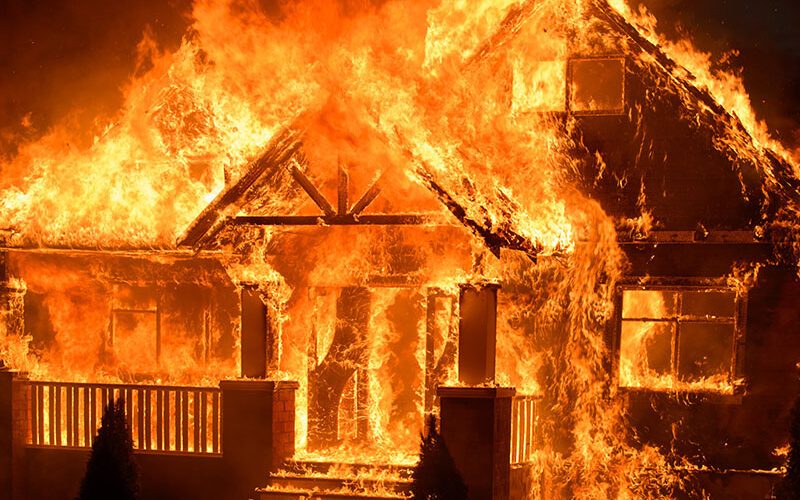In the world of criminal law, there’s no smoke without fire, and when it comes to arson, the heat is definitely on. If you find yourself tangled in the legal web of a first degree arson charge, it’s crucial to know your rights, understand the law, and be aware of the potential consequences. This article will shed light on the burning issue of first degree arson, providing a comprehensive guide for criminal defendants.
What Criminal Defendants Need to Know About First Degree Arson
Understanding Arson
Before we fan the flames of first degree arson, let’s take a step back and understand the basics of arson. Arson, in a nutshell, is the intentional act of setting fire to property, whether it’s a building, land, or even a vehicle. It’s a serious crime that can lead to devastating consequences, both physically and legally.
Degrees of Arson: From Smoke to Inferno
Arson is not a one-size-fits-all crime. It’s categorized into degrees, with first degree being the most serious. The degree of arson is determined by factors such as the intent behind the act, the type of property involved, and whether there were any injuries or fatalities.
First Degree Arson: The Heat of the Matter
First degree arson is the most serious form of arson. It involves intentionally setting fire to an inhabited building or structure, or any structure where people are present. The key element here is the presence of people, which significantly raises the stakes and the potential harm caused by the act.
The Legal Firestorm: Penalties for First Degree Arson
If convicted of first degree arson, you could be in hot water. Penalties vary by jurisdiction, but they typically include a lengthy prison sentence, hefty fines, and restitution to the victims. In some cases, if the arson resulted in death, a first degree arson charge could be accompanied by a murder charge.
Defending Against a First Degree Arson Charge
Alibi: Where There’s Smoke, There’s Not Always Fire
If you can prove that you were somewhere else when the fire started, you could extinguish the charge. An alibi can be a powerful defense, but it requires solid evidence, such as surveillance footage or witness testimony.
Lack of Intent: A Fire Without a Spark
First degree arson requires intent, meaning you had to have planned to start the fire. If you can show that the fire was accidental, you might be able to douse the charges.
Insufficient Evidence: No Smoke Without Proof
The prosecution must prove beyond a reasonable doubt that you committed the crime. If the evidence is weak or circumstantial, you could have a fighting chance.
FAQs
What distinguishes first degree arson from other degrees of arson?
First degree arson typically involves setting fire to an inhabited building or structure, or any structure where people are present. The presence of people is what sets it apart from other degrees of arson.
What are the potential penalties for a first degree arson conviction?
Penalties can include a lengthy prison sentence, hefty fines, and restitution to the victims. The exact penalties vary by jurisdiction and the specifics of the case.
Can I be charged with first degree arson if the fire was accidental?
No, first degree arson requires intent. If the fire was accidental, you should not be charged with first degree arson.
**What should I do
if I’m charged with first degree arson?**
The first thing you should do is consult with a criminal defense attorney. They can guide you through the legal process and help you build a strong defense.
What kind of evidence is used in a first degree arson case?
Evidence can include physical evidence from the fire scene, surveillance footage, witness testimony, and expert testimony from fire investigators.
Can a first degree arson charge be reduced?
Yes, in some cases, a first degree arson charge can be reduced to a lesser degree of arson or a different charge altogether, especially if there’s a lack of evidence or if the defendant can prove a lack of intent.
Comparing First Degree Arson Charges Across the USA
Arson laws and penalties vary significantly from state to state. Let’s take a closer look at how first degree arson is defined and penalized in ten different states across the USA.
California
In the Golden State, first degree arson is defined as setting fire to an inhabited dwelling or structure. The penalties are severe, with a prison sentence of up to 8 years. If the fire causes great bodily injury, the sentence can be extended to 9 years.
Texas
Texas law defines first degree arson as intentionally starting a fire that causes bodily injury or death, or that damages a habitation or place of worship. The punishment can be up to life in prison, depending on the severity of the damage and injuries.
New York
In the Empire State, first degree arson involves intentionally setting a fire that causes serious physical injury to another person. The penalty can be up to 25 years in prison.
Florida
Florida’s first degree arson law covers fires set to dwellings and structures where people are normally present. The penalty can be up to 30 years in prison, a $10,000 fine, or both.
Illinois
In Illinois, first degree arson involves using fire or explosives to damage any property with the knowledge that a person is present inside. The punishment can be up to 30 years in prison.
Michigan
Michigan law defines first degree arson as burning a dwelling, regardless of whether it’s occupied. The penalty can be life imprisonment or any term of years, depending on the court’s discretion.
Georgia
In Georgia, first degree arson involves knowingly damaging a dwelling through fire or explosives, whether it’s occupied or not. The penalty ranges from 1 to 20 years in prison, depending on the circumstances.
Ohio
Ohio’s first degree arson law covers intentionally setting fire to an occupied structure. The penalty can be up to 11 years in prison and a fine of up to $20,000.
Washington
In Washington state, first degree arson involves knowingly and maliciously causing a fire or explosion that is likely to endanger human life. The punishment can be up to life in prison.
Arizona
Arizona defines first degree arson as knowingly damaging a structure or property by knowingly causing a fire or explosion. The penalty can be up to 21 years in prison.
In conclusion, while the specifics of first degree arson laws and penalties vary from state to state, it’s clear that it’s a serious crime with severe consequences across the board. If you’re facing a first degree arson charge, it’s crucial to understand the laws in your specific state and to seek legal counsel immediately.
Conclusion
Being charged with first degree arson is no small matter. It’s a serious crime with severe penalties. But remember, a charge is not a conviction. With a solid understanding of the law, a strong defense, and the right legal counsel, you can fight the charges and protect your rights. So, if you’re in the hot seat, don’t lose hope. Knowledge is power, and now you’re armed with what you need to know about first degree arson.

